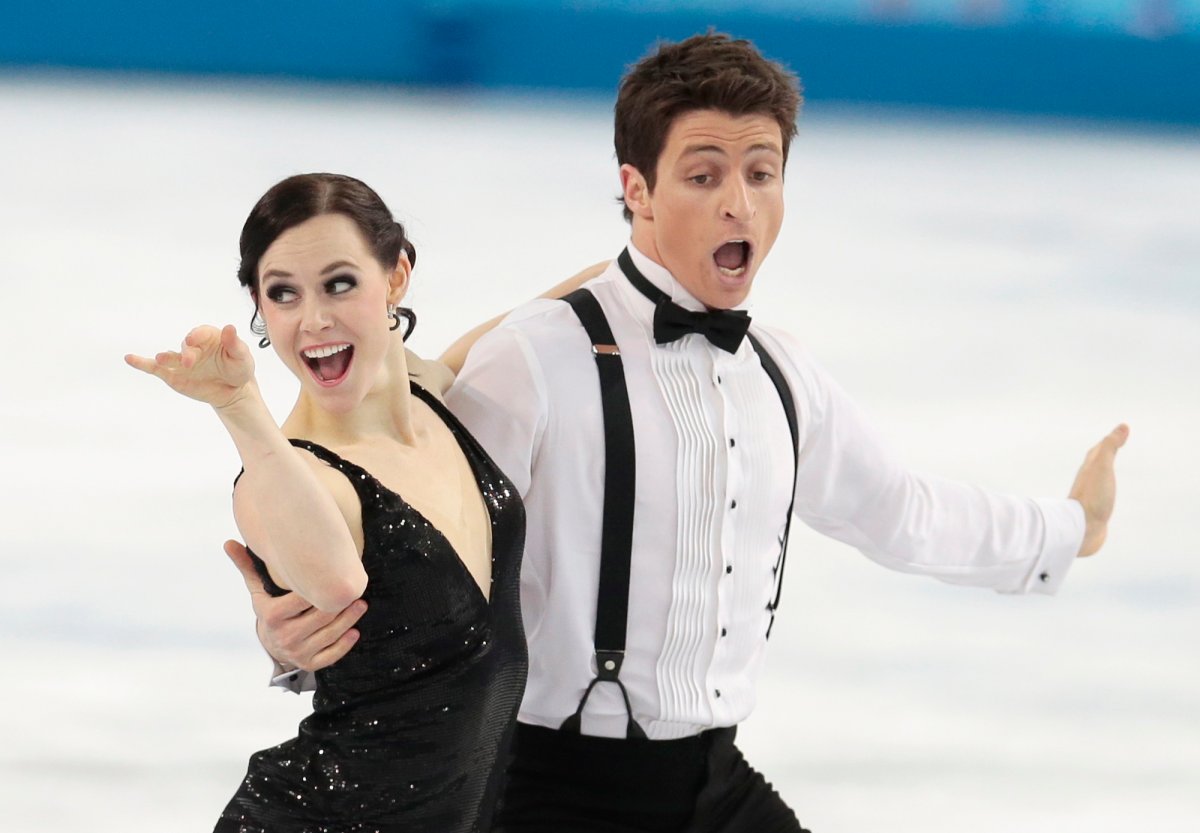The world of figure skating was thrown into controversy – again – over alleged vote swapping between the Russians and Americans, and for economist Eric Zitzewitz the problem lays within the judging system.

The allegations, outlined in a report by French newspaper L’Equipe, involved Russian and American judges exchanging votes to keep Canadian skaters Tessa Virtue and Scott Moir off the podium.
Eric Zitzewitz, an economist at Dartmouth College, has studied judging biases in Olympic winter sports extensively and found that despite changes made by the International Skating Union (ISU) incidents of collusion between skating federations have gotten worse.
READ MORE: Virtue and Moir shrug off reports of vote swapping skating scandal
“As someone who has analyzed past data you do see evidence of vote trading and scoring patterns that are consistent with these type of arrangements,” said Zitzewitz. “Since the changes were made in 2002 things have gotten worse.”
In one study using data on roughly 3,000 performances from 61 international competitions between 2000-02 (including the Olympics), Zitzewitz found the “home judge bias” accounted for nearly 0.2 points in skaters’ routines, often enough to boost their rankings by a position or more. The research also supported the theory of vote-swapping, that figure skating federations were making backroom deals to favour each other’s skaters.
For many, especially Canadians, the 2002 Winter Games in Salt Lake City will be forever marred by the figure skating scandal in which judges from five countries colluded to give Russian skaters Elena Berezhnaya and Anton Sikharulidze the gold over Canadian skaters Jamie Salé and David Pelletier.
A resulting investigation had scores by a French judge removed and the gold medal given to the Canadians.
In the wake of the massive scandal, the ISU made several changes — most notably that judges scores would be kept anonymous.
Zitzewitz says the stated reason for getting rid of the transparency was it made it easier for judges to participate in collusive vote-swapping. But it also eliminated the ability for outsiders to monitor voting patterns.
“And so it becomes a question of which is more important? Monitoring by outsiders and the disciplining effect that it has on these sorts of arrangements or the monitoring by insiders,” he said.
READ MORE: Canada’s Bilodeau, Kingsbury win gold, silver in moguls at Sochi Olympics
Speaking to reporters in Sochi on Sunday, International Olympic Committee spokesman Mark Adams dismissed the report from the French newspaper.
The Canadians, Virtue and Moir, ultimately did finish second to their American rivals in the short dance segment of the new team event Saturday night, after the Canadian couple made a small technical error during their routine.
Despite the controversy, Virtue and Moir are preparing for the upcoming individual ice dance program.
“Our hats go off to what was probably a dominant Russian performance, and they really earned the gold medal and had some great skates,” said Moir in a phone interview from Russia. “From a personal standpoint there is some work for Tessa and I to do. Our goal wasn’t to come here and be silver medalists. We want to be Olympic champions.”
For our ongoing coverage on the Sochi Games, click here
According to Zitzewitz, a two step process is required in order to create a more honest judging system.
*With a file from Global’s Leslie Young


Comments